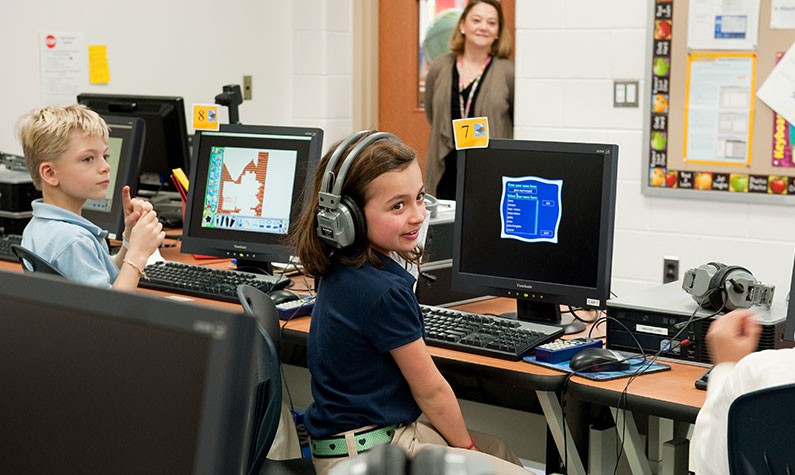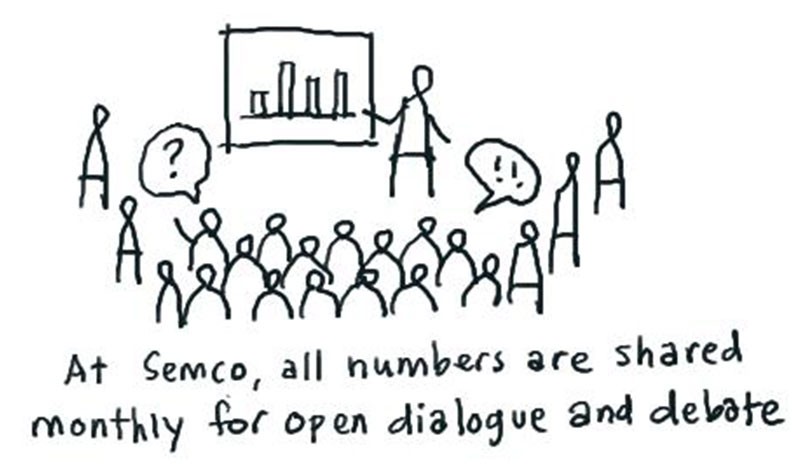
Ricardo Semler and the Revolution in Education
You must have heard of Ricardo Semler, the CEO of Brazilian company Semco SA, who transformed his father's business and turned Semco into one of the most profitable and unorthodox companies in the world. But did you know that he's also trying to revolutionize education through his Lumiar School in San Paolo, which is every bit as eccentric as his company? That's why in order to understand his approach to education, you need to explore his approach to business first. Let's look at his very successful management style.

A little history first
Semco SA, established in 1953 by Austrian engineer Antonion Curt Semler, started out as an industrial company, manufacturing centrifuge for vegetable oil processing, as well as marine pumps for Brazil's shipbuilding industry. It was a typical company for the time, following a traditional hierarchy and standard rules. His son, Ricardo Semler, joined the company when he was only 19 and the two of them got into a series of arguments about the way the company was doing business. For starters, Ricardo thought Semco was overly dependent on the naval industry and needed a more diverse clientele. He also disliked the rigid hierarchical model, so he threatened to leave the company. His father relented and transferred the company to his son. The year was 1980 and Ricardo Semler was only 21.
The first thing Ricardo Semler did as a CEO was to fire 60% of all executives because he felt they were responsible for the company's backward working practices. Just 2 years later, Semco was manufacturing mixers for a number of industries chemical, food and pharmaceutical and it continued to expand into different niches throughout the 1980s. Gradually, he liberalized the structure of the company as well, despite meeting harsh opposition. Today, Semco looks like no other company employees from all ranks are treated equally, they have a share of the company's profits, job titles have been dispensed with altogether and everyone chooses their working hours and salary. There's a lot more I could tell you about the freedom endowed to Semco employees, but I don't want to make you overly jealous. As for the skeptics, the growing success Semco has enjoyed since the 1980s speaks louder than any arguments.

The Lumiar School
As Ricardo Semler's business started to grow, he began to put more time into other activities he found meaningful. Education is one of them. Convinced that traditional management methods were just as unsuccessful as traditional forms of education and upbringing, in 2003 he established the Lumiar School in Sao Paolo. It's centered on the notion that children will grow up to be responsible and free-thinking adults if they weren't held back by the constraints of conventional education.
The Lumiar School resembles Semco in many respects. There is no curriculum in the traditional sense of the word, but rather an altogether permissive attitude towards behavior and learning. Children are free to choose the subjects they want to learn and everything inside the school is fashioned to nurture their spirit for experiment and exploration. Think that a child can't exercise self-control? Sure, the staff admits that children often spend their first weeks in wild horseplay, choosing to do little to no learning at all. But every child is bound to get tired at some point. And that is the pedagogical logic behind the Lumiar School. Traditional schools impose so many restrictions that children naturally reach for the forbidden fruit. But when that fruit is just as available as all other activities, children start treating it the same way as they do learning.
Another feature of the Lumiar School, which you will not observe in most classrooms, is The Circle. It's a weekly meeting in which all students (ages 4 to 14) can participate alongside their teachers in voting on important school issues. That, very much like Ricardo Semler's participation management style, teaches children decision making and democratic principles. The school uses practical situations, as opposed to facts exclusively, to guide the learning process.
It's too early to say if Ricardo Semler's innovative approach to education will prove to be a success. But if his school does at least half as good as his company is doing, I say let's turn all schools into the Lumiar School.
Schools everywhere are adding technology to their classrooms, and children are discovering new ways to learn. Schools find our bulk flash drives help students learn from home, and we have flash drives for education that colleges and universities use to reach their students.








